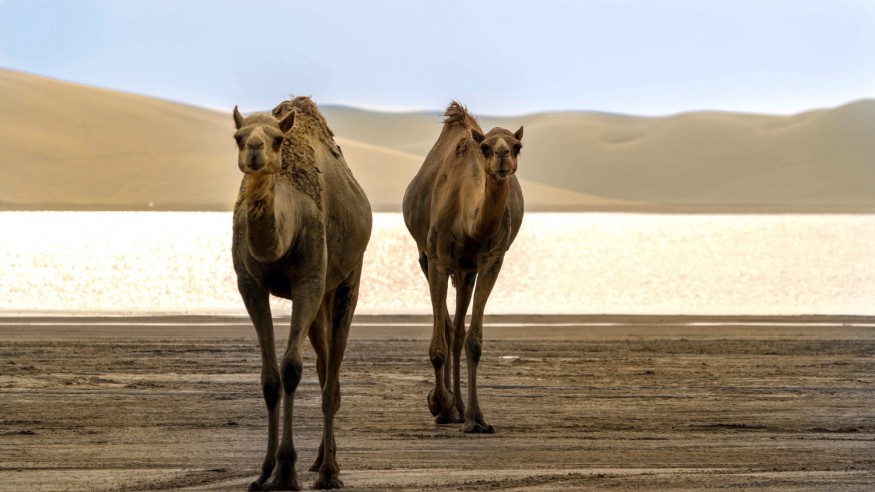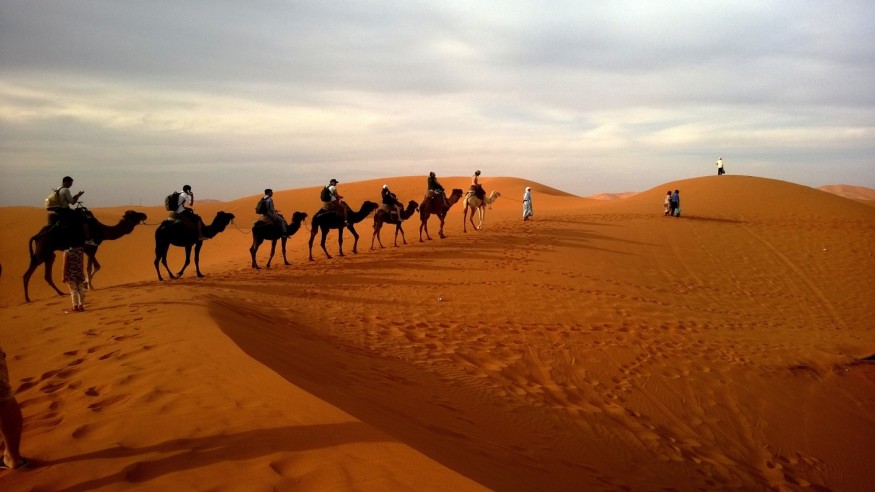A study has revealed that a number of camels have died after foraging plastics they had mistaken for food outside Dubai, in the United Arab Emirates.

The dromedary camels, in their large numbers, have been foraging on desert trash including plastics, on the outskirts of Dubai in the UAE. The study reveals that 1 in 100 camels die as a result of foraging on plastics. The plastic bags and trash they ingest accumulate in their stomachs and form masses known as polybexoars.
The Study of Plastic Pollution
Two plastic pollution experts met in the Arabian Gulf, in the UAE. Markus Eriksen was studying plastic pollution when he met Ulrich Wernery, a camel expert. Immediately, Wernery asked Eriksen to follow him since he wanted to see the plastics. The two went on an expedition deep into the desert. Not quite long, they sighted a camel's skeleton on the ground.
The discovery of the camel skeleton made them start digging up the desert soil. As two men were digging the sand, they uncovered a mass of plastics. Being a plastic pollution expert, Eriksen knew how dangerous plastics could be to the camels if they were foraging on them.
Eriksen was surprised when he saw a big mass of plastic bags (almost a medium size of a suitcase) inside the rib cage of a camel carcass. He wasn't prepared for a scenario like that.
ALSO READ - World's Oldest Orangutan Has Been Put To Rest At Oregon Zoo

The Danger of Ingesting Plastics
Eriksen affirmed that plastics are dangerous to marine mammals such as sea lions, turtles, whales, and seabirds, but the problem goes beyond the sea animals. It's now a land problem as camels are dying from foraging on plastics. "But this is not just an ocean issue," Eriksen said, "It's a land issue, too. It's everywhere."
Wernery, who is a veterinary microbiologist, and researcher in Dubai, said a number of dromedary camels (Camelus dromedarius) have died as a result of plastic ingestion. He noted that about 390,000 dromedary camels live in the UAE. But his team reported that about 30,000 camels have died since they began their study in 2008. Out of this number, about 300 had guts packed with plastics.
Eriksen explained that dromedaries munch on plastic bags and trash as they roam the desert. The problem lies with the camels' inability to recognize plastics as objects that are not food. Eriksen said, to a camel, "if it's not sand, it's food."
Wernery and Eriksen called the indigestible masses of the plastic bags "polybezoars", which can be related to plastic polymers. Wernery pointed out that when animals fill their stomach with plastics, they form bezoars. They may stop eating and would no longer feel hungry. At that point, an animal might starve to death. Also, plastics can leach toxic chemicals. Polybezoars may also carry bacteria that are poisonous to camels.
Data from this study showed that polybezoars are killing about 1 in 100 dromedary camels every year in the UAE. Out of five bezoars analyzed contain plastic content ranging from 3 to 64 kilograms (6.6 to 141 pounds)
An environmental scientist, Luca Nizzetto of the Norwegian Institute of Water Research in Oslo, noted that if plastics are verified in the future as responsible for 1percent of camels' deaths by more detailed studies, then plastic pollution should become a concern for camels.
In proffering solutions to plastic pollution, Eriksen said banning plastic bags is necessary to protect camels and other animals.
RELATED ARTICLE - Known Dog Food Product Kills 70 Dogs, Company Expands Voluntary Recall
For more news, updates about camels and related stories, don't forget to follow Nature World News!
© 2025 NatureWorldNews.com All rights reserved. Do not reproduce without permission.





